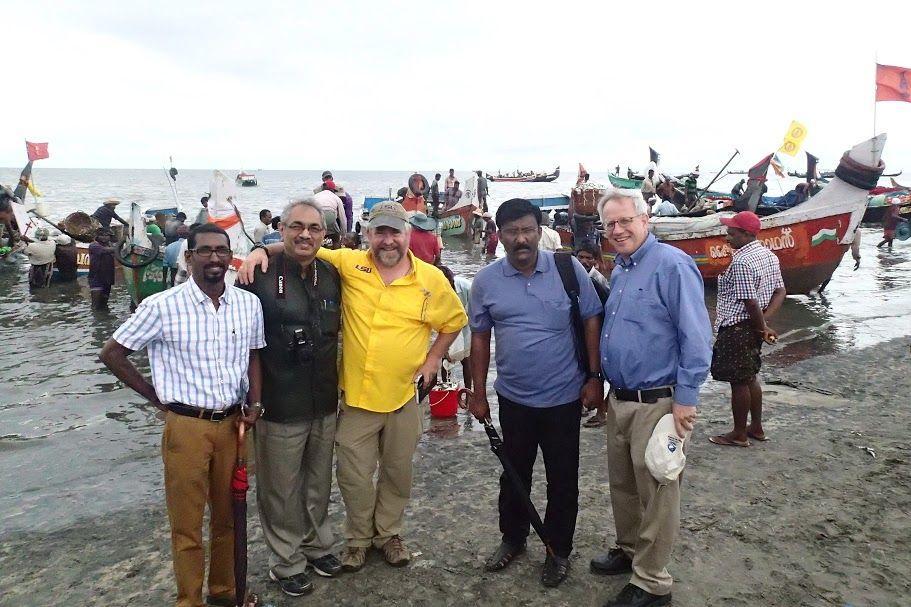Thanks to similar environments and new research opportunities, a scientific partnership links LSU and the Cochin University of Science and Technology in Kerala, India.
Kenneth Rose, associate dean of research for the LSU School of the Coast and Environment, and Sam Bentley, director of the LSU Coastal Studies Institute, went to Kerala from Sept. 4 to Sept. 13. with funds from the Erudite Visiting Scholars Program. The program invites scholars from across the world to visit Kerala and connect with researchers and students.
Bentley said Vice President for Research and Economic Development Kalliat Valsaraj — who is from the state of
Kerala — began looking to hold academic exchanges with universities in India and LSU. In January, Valsaraj made contact with CUSAT, home of the oldest marine science program in India, and suggested Bentley and a representative from the School of the Coast and Environment make contact with CUSAT scientists.
After speaking with their CUSAT contact, oceanography professor A.N. Balchand, CUSAT wrote a proposal to the Erudite Program to petition for funding.
“We each gave a series of lectures at CUSAT and other colleges and universities in the area,” Bentley said. “We also visited several field locations and had a very great time looking at shared interest between our universities.”
In the future, LSU and CUSAT will assist one another in research programs, including ecological modeling and atmospheric science. Not only will working together prove beneficial from a scientific standpoint but a funding
standpoint as well, Bentley said.
“It’s good for both organizations because international collaboration is highly prized by funding programs like the National Science Foundation or the Indian version of the National Science Foundation,” Bentley said.
As a result of the visit, CUSAT and LSU formed a collaborative research program. Bentley said one of the next steps is inviting Indian
researchers to America.
Contact between the universities will begin immediately, Bentley said, and will focus on ongoing research projects such as mangrove ecology — an important part of wildlife in both the Louisiana wetlands and Kerala. The two parties will start stitching together their research as soon as possible, Bentley said.
“They can offer us access to places and systems that we normally would not have access to,” Rose said. “It’s possible that their students could come to LSU for a few weeks and take a few of our classes. This
partnership is beneficial in multiple ways.”
By having similar environments, Rose said they can test certain theories they have for the Gulf Coast in India and get similar results.
The two universities will also look at toxic marine algae found in Louisiana’s and India’s coastal waters.
“There are some relatively striking similarities between our locations,” Bentley said. “Some of the areas we have here are characterized by offshore mud banks, which
influence the coastal environment and fisheries here. That exists in Kerala
as well.”
LSU scientists deliver guest lectures in India, develop research partnership
September 23, 2015
Kenneth Rose, associate dean of research for the LSU School of the Coast and Environment, and Sam Bentley, director of the LSU Coastal Studies Institute, connected with researchers and students earlier this month at the Cochin University of Science and Technology in Kerala, India.
More to Discover








